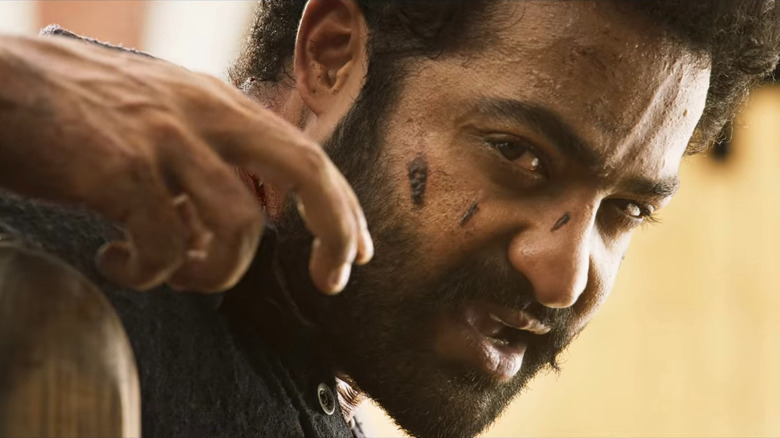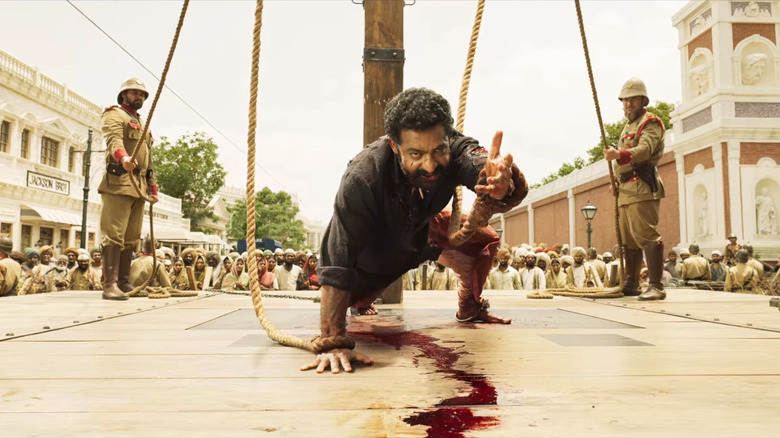
When Sight and Sound magazine does their decennial list of the greatest films of all time, I find that more interesting than the actual list itself is exploring all of the ballots submitted by the various critics and filmmakers invited to participate. Because we already know the consensus, seeing what individuals include as one-off outliers says so much about what they look for when they go to the movies. Without question, the most interesting top ten ballot from 2022 was from Indian blockbuster auteur S.S. Rajamouli. Not a single one of his choices ended up on the final directors' poll list, and this isn't a case of his list being filled with Indian films that many people haven't seen. In fact, only one Indian film, K.V. Reddy's 1957 epic "Mayabazar," made his list.
Instead, his list was very Western and very populist. It features Steven Spielberg's action-adventure masterpiece "Raiders of the Lost Ark," William Wyler's sword and sandals epic "Ben-Hur," Robert Zemeckis' Best Picture-winning "Forrest Gump," and three animated films: "Aladdin," "The Lion King," and "Kung Fu Panda." This is the list of a man who loves big, broad entertainment and classical storytelling.
Most notably, his list included two entries by the same director, the infamous and highly controversial Mel Gibson. "Braveheart" and "Apocalypto" both found a place in his top ten. For all of Gibson's off-screen horrors, you can certainly see the cinematic line from Gibson to Rajamouli. Both directors tell maximalist stories about mythic men in a battle for survival and revolution. In fact, Rajamouli was directly inspired by Gibson's "Braveheart" for a specific scene in his latest film "RRR," in which N.T. Rama Rao Jr.'s Komaram Bheem is brutally flogged in the town square of Delhi.
Martyrdom Leading To Revolution

You'd assume the Mel Gibson movie featuring public torture S.S. Rajamouli would be drawing from is "The Passion of the Christ," as that movie is basically two hours of torture. That isn't the case. In fact, Rajamouli told The New Yorker, "Actually, I didn't like 'Passion of the Christ.' It was too violent for me, at least at that point in time. I couldn't watch the film in one sitting." No, it was actually the climax of "Braveheart" that inspired him, but it wasn't because of the level of agony Gibson's William Wallace was put through. It was how his agony affected the people:
"The climax of 'Braveheart,' not 'Passion of the Christ,' was the inspiration for Bheem's song ... I remember the end of 'Braveheart,' when we can see the hero [Scottish freedom fighter William Wallace] being tortured and eventually killed. He shouts 'Freedom,' and when the film ended I didn't feel sad. I felt very emotional. I felt my spirit being uplifted. You can see the pain in his face, how he calls on his inner strength to say what he wanted to say, even though it is just one single word. That made a deep impact on me."
During his torture, Bheem sings the song "Komaram Bheemudo," which inspires all of the citizens of Delhi to fight back against this injustice being done to their people. It's not violence for its own sake. It's a rallying cry that also propels Ram Charan's Raju to finally execute his weapons plan. Most of "RRR" makes you raise your fist in joy and wonder. This scene makes you raise your fist with a desire to fight back. I wish that line went to someone else other than Mel Gibson, but that's the way it is.
Read this next: The 18 Best Action Movie Actors Ranked
The post How Braveheart Inspired A Pivotal Song In RRR appeared first on /Film.
